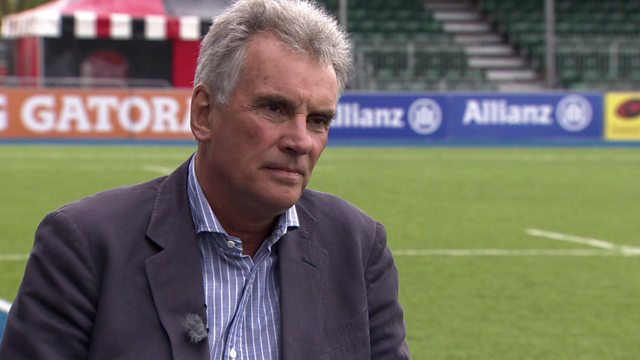
Anyone with even a fleeting interest in British sport won’t have failed to notice the monumental problems that are currently facing Saracens, the most successful club in European Rugby in recent years. Winners of three of the last four European Cups and Champions of England for the past two seasons, it cannot be understated what a seismic event in the sport’s fabled history this is.
At the heart of the issue lies the fact that the North London club have continually breached the salary cap that all Premiership teams must adhere to and this has now infamously culminated in their enforced relegation to the Champhionship at the end of the current season. It is therefore likely that they will lose a handful of highly-paid players in the summer, whether that be to other English clubs or to the Top 14 in France, where salary regulations are less stringent.
One rugby pundit has compared the situation to Manchester United, in their glory years under Sir Alex Ferguson, being found guilty of cheating and being relegated – it is hard to disagree with this sentiment, although of course the salaries involved tend to be far higher in professional football. One of the reasons this whole story is being downplayed is because we are dealing with financial doping, rather than ‘normal’ doping (please see Lance Armstrong, Ben Johnson etc.), and yet Saracens have still knowingly cheated systematically over the last few years in order to attract better players and therefore win more silverware. The fact that no drugs were involved does not change a great deal.
Anyone who remembers #BloodGate involving Tom Williams and Harlequins will recall just much of a furore that surrounded rugby for a number of months, and yet the cheating in which Saracens have partaken strikes me as far more systematic and premeditated. However, there is again a perceived sense that what Saracens have done is ‘not as bad’ because no fake blood capsules or EPO injections have been used.
What baffles me is that Saracens give off the impression of being an extremely well-run club with a firmly ingrained positive culture and yet nobody, not even the highly-trained accountants, on their staff believed that they would be caught out? This smacks of either ignorance or arrogance, and the more that comes to light about their financial doping, the more we are swayed to think it’s the latter.

One of the more revealing insights from this whole affair is that Saracens were given the option of either opening their books up for a forensic audit or being relegated. The mere fact that they chose the latter option shows that perhaps we have not heard the last of this story. In the coming months, it is likely that we will discover the true extent to which Saracens have been cheating financially.
It is worth noting that there is no salary cap in the Championship; however, all clubs that wish to be promoted must show that they are ready to comply with Premiership regulations and so the idea that Saracens may keep hold of all their star players to ensure immediate promotion is a mere fantasy. What is more likely is that a few of the core members will stay (whether they be on reduced wages or not) and the current fringe players, who are evidently paid less, come to the fore in their likely one season outside of the top league.
With regards to England and the nine Saracens players who have just been called up to represent them in the Six Nations, there is an ongoing debate about whether this could be a blessing in disguise. The argument goes that any England and Saracens player who stays at the club to play in the Championship will not have to exert themselves anywhere near as much against lesser opposition and so can focus on international duties for almost an entire season. However, surely it is the case that playing against teams of lesser calibre week in week out will do no good for the physical fitness and preparation that is required to play for England (lest we forget, they play both New Zealand and Australia in the autumn internationals)?
To add some opinion to the debate, there is little doubt in my mind that this is the last we have heard of the story. It would not surprise me in the slightest if other clubs began to clamour for the champions to be stripped of their numerous trophies in the period when they breached the cap and maybe that is exactly what they deserve. Only time will tell.